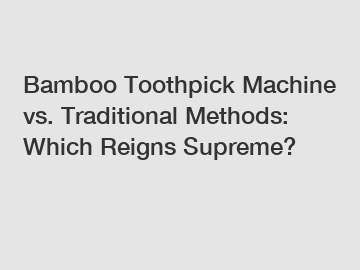Nashi Pear vs. Regular Pear: Which Packs More Health Benefits?
Nutritional Profile
Nashi pears, often referred to as Asian pears, boast a unique nutritional profile compared to regular pears. While both fruits are low in calories and rich in dietary fiber, Nashi pears contain slightly higher amounts of vitamin C and potassium. One medium Nashi pear typically provides around 7% of your daily vitamin C needs, while regular pears offer about 5%. This higher vitamin C count can boost immune function and skin health. On the other hand, regular pears are laden with antioxidants, including flavonoids and carotenoids, which may help combat oxidative stress and inflammation in the body.Fiber Content
When it comes to fiber, both Nashi and regular pears come out on top, but their impacts on your digestive health may vary. Regular pears have about 5-6 grams of fiber per medium fruit, while Nashi pears contain slightly less. However, the type of fiber in these fruits differs; Nashi pears are known for their firm and crisp texture, making them a delightful snack that encourages thorough chewing and digestion. The fiber found in both pear varieties supports gut health, regulates blood sugar levels, and aids in weight management, making either choice a smart addition to your diet.Glycemic Index
The glycemic index (GI) is vital for anyone monitoring blood sugar levels. Nashi pears have a moderate GI, ranging from 30 to 40, making them a suitable option for diabetics. They release sugars slowly into the bloodstream, which helps maintain stable energy levels throughout the day. Regular pears, on the other hand, can also claim a low GI, making both fruits viable choices for those looking to manage their blood sugar. Including these fruits in your meals can provide lasting energy without excessive spikes in glucose levels.Antioxidant Properties
Antioxidants play a crucial role in health by neutralizing free radicals that can lead to chronic diseases. Regular pears generally have higher antioxidant content due to their skin, which is rich in quercetin and other flavonoids. Studies suggest that these compounds can reduce the risk of cardiovascular diseases and certain types of cancer. Nashi pears, while also rich in antioxidants, contain different types, such as vitamin C and phenolic compounds, which may serve a more specific role in protecting cellular function. Both fruits can be effective in battling oxidative stress when incorporated into a balanced diet.Culinary Uses and Versatility
Both Nashi pears and regular pears shine in the kitchen, offering a range of culinary possibilities. Nashi pears, with their crisp texture, are often eaten raw in salads or as a refreshing snack. They can also be used in stir-fries and as a sweet-sour complement in Asian dishes. Regular pears, with a softer flesh when ripe, can be baked, poached, or used in desserts like pear tarts or crumbles. Their different textures and flavors provide a unique twist to various recipes, making it easy to incorporate both into your meals.Conclusion
So, which pear packs more health benefits? The answer may depend on your individual health goals and preferences. If vitamin C and texture are your priorities, Nashi pears might be the way to go. Conversely, if you're looking for a fruit rich in antioxidants, regular pears could be your best bet. Ultimately, including both types in your diet can provide a wider array of health benefits. For more information on incorporating these delicious fruits into your meals, or if you have queries, feel free to contact us!For more information, please visit Nashi Pear Health Benefits, Snow Pear Soup for Cough, Is Pear Bad for Diabetes.
Explore more:The Benefits of Incorporating Nashi Pear into Your Diet
Are Vinyl Seawall Panels the Ultimate Solution for Coastal Erosion?
What are the benefits of sintered metal filters?
Top 5 OEM Bamboo Making Machine Innovations Revealed
Top Trends in Sintered Filter for Oil Filtration 2024
How Can OEM Bamboo Stick Machines Transform Sustainability?
10 Benefits of Silicone Feeding Sets for Busy ParentsExplore more:
Bamboo Products Processing Equipment Exporter: Local vs. International Options
How Stainless Steel Tanks Revolutionize Water Storage?
How Can Membrane Diffusers Improve Your Wastewater Treatment Efficiency?
Top Custom VA Oil Seal Manufacturer for Your Unique Needs
What Are the Benefits of TA Oil Seal China?
7 Essential Benefits of High-Speed Tape Rewinding Machines You Should Know
How Can a Big Diameter BOPP Tape Slitting Machine Improve Efficiency?
Related Articles




Comments